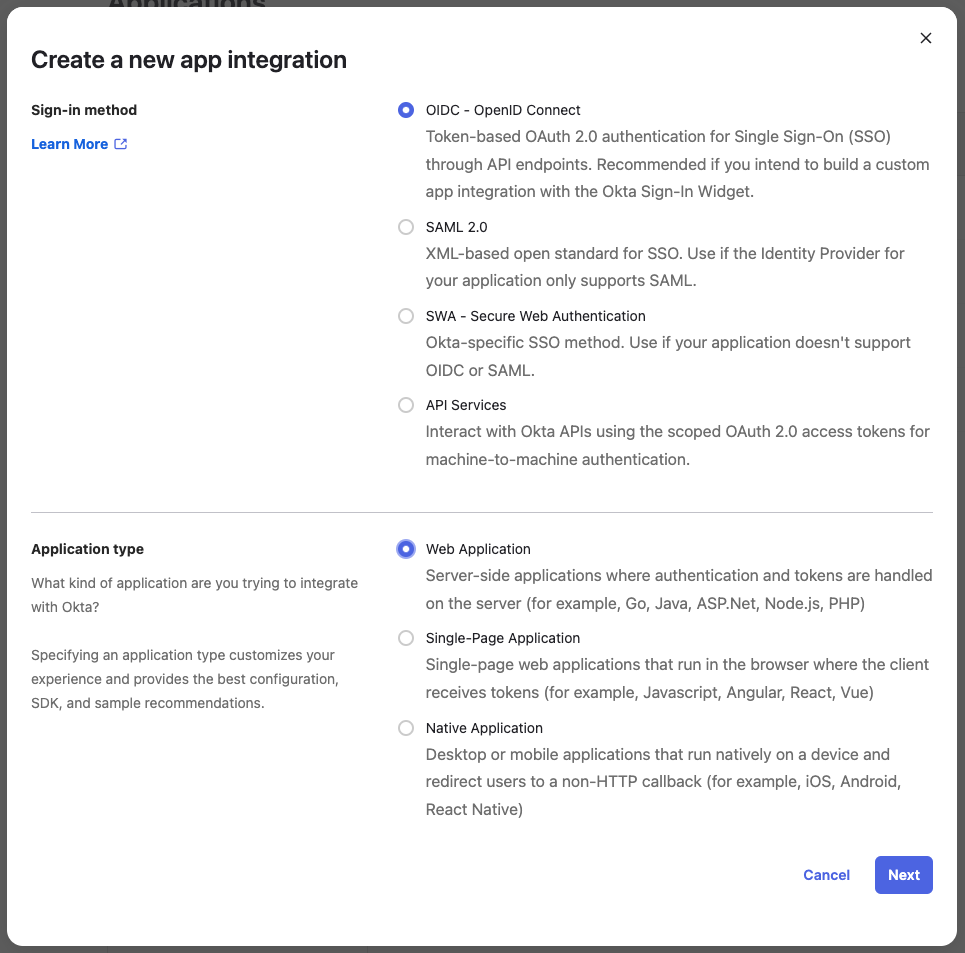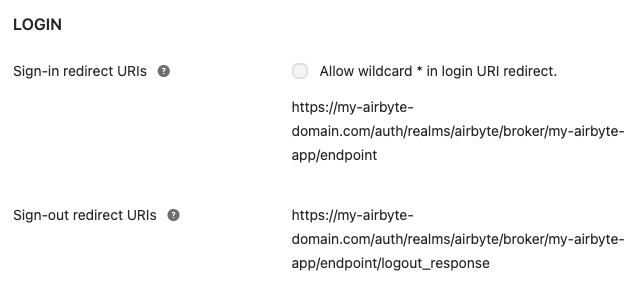Using Single Sign-On (SSO)
Leverage your existing identity provider to enable employees to access your Airbyte instance using their corporate credentials, simplifying user provisioning. Enabling Single Sign-On extends Airbyte Self Managed to support multiple users, and multiple teams all on one instance.
Airbyte Self Managed currently supports SSO via OIDC with Okta as an IdP. Support for Azure Active Directory and connecting via SAML are both coming soon. Please talk to us to learn more about upcoming enterprise features.
The following instructions walk you through:
- Setting up the Okta OIDC App Integration to be used by your Airbyte instance
- Configuring Airbyte Enterprise to use SSO
Setting up Okta for SSO
You will need to create a new Okta OIDC App Integration for your Airbyte instance. Documentation on how to do this in Okta can be found here.
You should create an app integration with OIDC - OpenID Connect as the sign-in method and Web Application as the application type:

App integration name
Please choose a URL-friendly app integraiton name without spaces or special characters, such as my-airbyte-app:
Spaces or special characters in this field could result in invalid redirect URIs.
Redirect URIs
In the Login section, set the following fields, substituting <your-airbyte-domain> and <app-integration-name> for your own values:
Sign-in redirect URIs:
<your-airbyte-domain>/auth/realms/airbyte/broker/<app-integration-name>/endpoint
Sign-out redirect URIs
<your-airbyte-domain>/auth/realms/airbyte/broker/<app-integration-name>/endpoint/logout_response

Example values
<your-airbyte-domain> should point to where your Airbyte instance will be available, including the http/https protocol.
Deploying Airbyte Enterprise with Okta
Once your Okta app is set up, you're ready to deploy Airbyte with SSO. Take note of the following configuration values, as you will need them to configure Airbyte to use your new Okta SSO app integration:
- Okta domain (how to find your Okta domain)
- App integration name
- Client ID
- Client Secret
Visit the implementation guide for instructions on how to deploy Airbyte Enterprise using kubernetes, kubectl and helm.